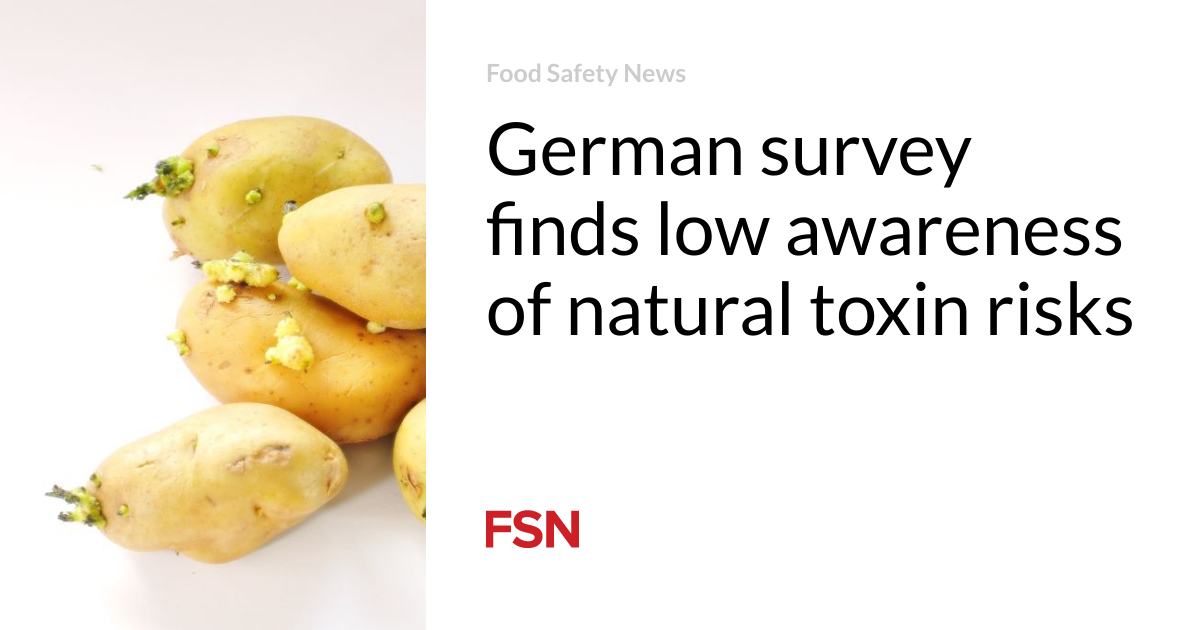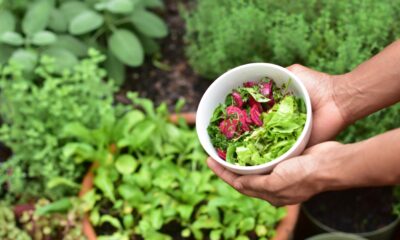Food
A German study shows that there is little awareness of the risks of natural toxins

A survey has revealed a gap in consumer knowledge in Germany when it comes to natural plant toxins.
A poll by the German Federal Institute for Risk Assessment (BfR) found that just under half of respondents (47 percent) were aware of substances toxic to plants.
The special edition of the BfR Consumer Monitor on naturally occurring plant toxins also found that 27 percent of people are concerned about this risk. The survey was conducted in August 2023 among 1,012 people and the report was recently released.
Many foods contain toxins of natural origin. These are often chemical compounds used by plants to repel predators such as insects or microorganisms. These substances are found in products such as beans and potatoes and can pose health risks.
Natural toxins and mold
An example is solanine in potatoes; green or germinating parts contain elevated concentrations of this toxin. Certain types of beans contain lectins, which if not prepared properly can cause illness. In many cases, heating the food is sufficient to neutralize the natural toxins.
“The research results make it clear that risks of natural origin are often underestimated, while risks of synthetic origin are often overestimated,” says Professor Andreas Hensel, President of the BfR.
Residues in food (from crop protection products) and contaminants, such as substances that are not deliberately added to food, such as heavy metals, worry 63 and 62 percent of people respectively.
When asked about foods with naturally occurring plant toxins, participants named potatoes, tomatoes, raw beans and mushrooms.
More than half of respondents felt uninformed about plant toxins in food, while only eight percent said they were well informed.
When asked about plant toxins that occur naturally in food, more than 60 percent had heard of morphine and opiates, 31 percent of coumarin and 26 percent of solanine. Only 4 percent had heard of pyrrolizidine alkaloids.
Regarding moldy food, the BfR said that even small amounts of mold toxins can be harmful to human and animal health and that moldy jam should always be completely discarded. However, 25 percent of respondents say they only remove the moldy part.
With moldy berries, the affected and surrounding fruit should no longer be eaten, but only 60 percent follow this rule. In vegetables, more than 40 percent remove the moldy part. The majority of people threw away moldy yogurt and bread.
Algae toxins
In the meantime, the BfR is organizing a symposium on aquatic toxins on June 10 and 11, 2024.
The National Reference Laboratory (NRL) for the monitoring of marine biotoxins at BfR has invited national and international aquatic toxin experts to Berlin.
An example is ciguatoxin. Ciguatera poisoning is rare in Germany, but does occur as a result of imported tropical fish. The situation of the ciguatera outbreak in the country is one of the many topics that will be discussed.
The detection and treatment of ovatoxin-a, a toxin that can be ingested through the consumption of mussels, and other toxins in salt and fresh water will also be discussed.
Jonathan R. Deeds, from the U.S. Food and Drug Administration, will speak about the effects on humans and animals of exposure to palytoxins. Other presenters come from New Zealand, Italy, Spain, Canada and France.
The aim of the event is to exchange scientific information to better understand aquatic toxins. Experts will discuss which such toxins may pose health risks to humans, how they affect aquatic organisms and how these risks can be minimized.
(To sign up for a free subscription to Food Safety News, click here.)













